Iran Pledges Retribution For Killing Of IRGC Commander In Syria
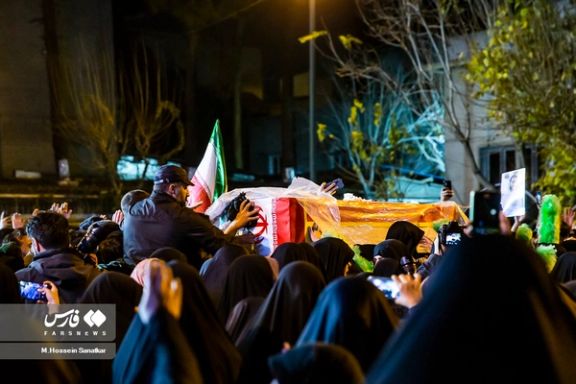
The Commander of Iran's Islamic Revolutionary Guard Corps (IRGC) has vowed revenge for the killing of IRGC commander Razi Mousavi in Syria.

The Commander of Iran's Islamic Revolutionary Guard Corps (IRGC) has vowed revenge for the killing of IRGC commander Razi Mousavi in Syria.
Mousavi was targeted in an alleged Israeli airstrike earlier this week amid the shadow war between the two countries, with his body subsequently brought to Tehran for burial.
Amidst the Gaza war, which commenced on October 7 with Hamas leading the conflict against Israel, Iran-backed militias in Syria, Iraq, Yemen, and Lebanon have also become involved.
In a televised speech, Hossein Salami declared that the retaliation for Mousavi's death would extend beyond conventional measures.
"Our revenge for the martyrdom of Sayyed Razi will be nothing less than the removal of the Zionist regime," Salami said, claiming that he had defended the Muslim nation for almost 33 years.
Mousavi played a pivotal role within the IRGC, known as the IRGC's man in Syria. Thousands of mourners gathered in Tehran's central Imam Hossein Square for Mousavi's funeral, passionately chanting anti-Israel and anti-American slogans. The crowd waved yellow flags bearing the message "I am your opponent," directly targeting Israel.
During the funeral on Thursday, Iran's Supreme Leader, Ali Khamenei, led prayers and paid tribute to Mousavi.
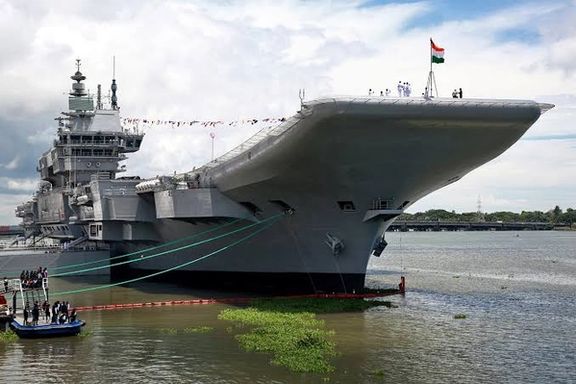
Officials in New Delhi have pledged to hold accountable those responsible for the recent attacks on two merchant vessels predominantly crewed by Indians.
The commitment comes in the midst of ongoing missile and drone strikes in the Red Sea, attributed to Houthi rebels and Iran.
India's response to the incidents in the Red and Arabian Seas, particularly the attacks on MV Sai Baba and MV Chem Pluto follows the incident on the MV Chem Pluto which was targeted by a one-way attack drone a mere 200 nautical miles off the Indian coast. While the Pentagon attributes the attack to Iran, deviating from the majority of strikes originating in Yemen, India has refrained from officially naming the perpetrator.
During the commissioning ceremony of INS Imphal (D68), the third destroyer in the Indian Navy's Visakhapatnam class, Raksha Mantri Shri Rajnath Singh, India's Defense Minister, declared a commitment to retaliatory measures. "Those who have carried out these attacks, we will find them from the bottom of the sea, and strict action will be taken against them," stated Shri Rajnath Singh.
The defense minister emphasized India's role as the "Net Security Provider in the entire Indian Ocean Region" and its commitment to keeping sea lanes open to facilitate expanded regional trade in collaboration with international partners. Singh also attributed the attacks to India's "growing economic and strategic power," suggesting that it has fueled "jealousy and animosity" in certain quarters.
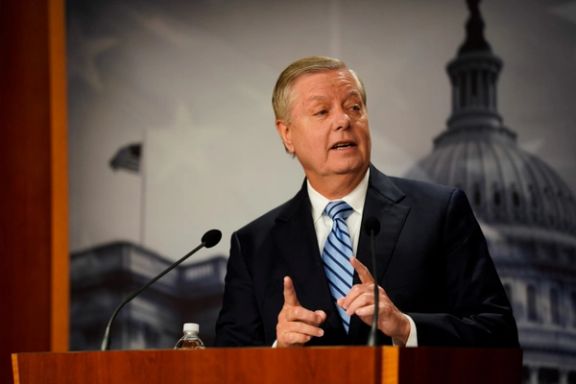
Amid Mideast tensions, Senator Lindsey Graham called on Wednesday for a much harsher approach towards Tehran, suggesting that the US should bomb the IRGC inside Iran.
“I've been saying [this] for six months now,” Graham said on Fox News, “hit Iran. They have oil fields out in the open. They have a Revolutionary Guard headquarters you can see from space. Blow it off the map.”
The Republican Senator's tough position regarding Iran is nothing new. It is serious, however, since it follows a few days of unmistakable escalation in the face off between Israel and the US on one side and Hamas, Iran and its regional allies on the other.
Since Monday, Israel has killed Iran’s top man in Syria; Iran-backed militias have targeted US bases in Iraq, wounding three soldiers, one critically; Yemen Houthis have launched multiple attacks in the Red Sea, forcing the American fleet to shoot down at least 17 drones and missiles; and the US has struck Iran-affiliated positions in Iraq.
On Wednesday, President Joe Biden sent a letter to top Congressional leaders explaining his decision to strike back in Iraq, immediately after it was confirmed that a US serviceman had been critically injured.
"The strikes were intended to degrade and disrupt the ongoing series of attacks against the United States and our partners,” Biden said, “and to deter Iran and Iran-backed militia groups from conducting or supporting further attacks on United States personnel and facilities."
But this is not a response that would satisfy Biden’s Republican critics in the Congress.
“The Biden administration is failing our troops in the field,” said Senator Graham, who is a member of the influential Senate Armed Services Committee. “If you really want to protect American soldiers, make it real to the Ayatollah, you attack a soldier through proxy, we're coming after you.”
Iran-backed groups in Iraq and Syria have targeted US forces more than a hundred times since mid-October. So far, no American soldier has been killed. With every attack, however, criticism of Biden’s policy on Iran has become more extensive and harsher.
Republican presidential candidate Nikki Haley pilloried Biden in a TV interview Wednesday.
“Getting out of Obama's Iran deal sent a message to Iran that America meant business,” she said, hailing Trump’s decision to withdraw from the nuclear agreement with Iran. “Joe Biden falling all over himself to get back into the deal sent a message to Iran that it could walk all over America.”
Haley is one of the more vocal critics of Biden’s Iran policy, not surprising as she aims to be the Republican running against him next year. The current crisis in the Middle East will likely be a central theme in the 2024 campaign, especially since no end is in sight for the war in Gaza or attacks by Iran's proxies.
On Wednesday, Benny Gantz, a member of Israel’s emergency war cabinet, hinted at another war with Hezbollah in Lebanon.
“If the world and the Lebanese government don’t act in order to prevent the firing on Israel’s northern residents, and to distance Hezbollah from the border, the IDF will do it,” Ganz said in a press conference.
Hezbollah is widely believed to be the strongest non-state actor in the region, with an estimated arsenal of more than a hundred thousand missiles. A full-blown war with the group would see thousands added to the more than 20,000 Palestinians killed by Israel since early October.
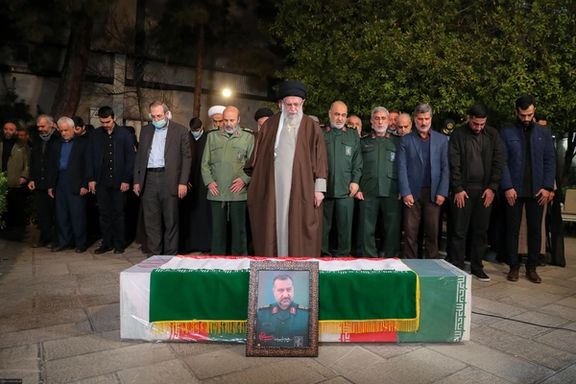
Iran’s Supreme Leader Ali Khamenei performed funeral prayers on Thursday for Razi Mousavi, a top IRGC commander who was killed in an Israeli airstrike in Syria.
This gesture underscores the high regard Khamenei held for the slain commander, as he typically reserves funeral prayers for those in his inner circle, such as Qassem Suleimani, another key IRGC operative, who was killed in a targeted US air strike in Iraq in 2020.
On Thursday, Khamenei also met with the family of Razi Mousavi and hailed his years of “indefatigable jihad”.
Razi Mousavi (aka Seyyed Razi) was killed by a direct airstrike Monday, believed to have been launched by Israel. He headed IRGC’s ‘logistics’ and military coordination in Syria, getting weapons for and coordinating Iran-backed forces in Syria and Lebanon.
He had been active in Syria for more than 25 years, and had escaped multiple Israeli attempts on his life, according to reports in IRGC-affiliated media.
Iranian regime officials have vowed retaliation against Israel, with one general suggesting that October 7 Hamas attack was already an act of revenge for Soleimani’s killing.
President Ebrahim Raisi pleged that “Israel will face the consequences for Mousavi's death.” Foreign Minister Hossein Amir-Abdollahian stressed that Tel Aviv “must brace for a formidable countdown.”
Following the death of the commander, Iran's proxies in the region have intensified their attacks against Israeli and American targets. The US fleet in the Red Sea intercepted 17 drones and missiles on Tuesday.
Destroyers and fighter jets from the USS Eisenhower were forced to shoot down “twelve one-way attack drones, three anti-ship ballistic missiles, and two land attack cruise missiles” in the Red Sea –all fired by Iran-backed Houthis in 10 hours, according to the US Central Command.
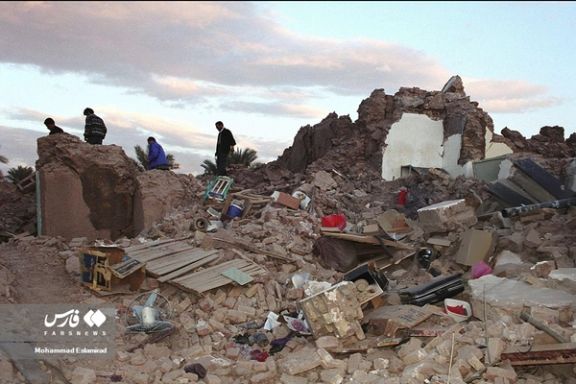
Twenty years since a 6.6-magnitude earthquake shook Bam city in southeast Iran, killing 34,000, fears of a repeat loom large amid Iran's dire corruption.
Earthquake mortality has been found to be higher in countries where corruption is high and in the past 30 years, 83% of all earthquake-related deaths have occurred in anomalously corrupt countries, according to a 2011 report.
In the aftermath of a natural disaster, deterioration of public institutions and a proliferation of inferior building stock can lead to more severe consequences.
As Iran is prone to natural disasters, the UN emphasizes the importance of adopting an effective long-term strategy but the details of mismanagement indicate that tragedies such as the tragedy of the Bam earthquake may repeat themselves.
Authorities reported the Bam earthquake death toll a massive 17 years after the tragedy. Until then, the numbers were estimates and not based on official data. The authorities in Bam resorted to “traditional” healing methods in the first nights following the earthquake, which the Rouydad24 website identified as “opium” being given to survivors.
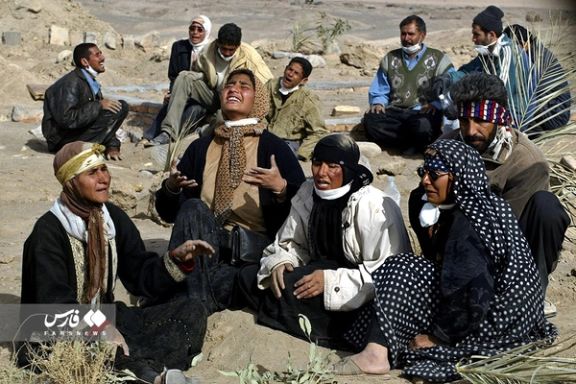
Further examples of poor management can be found in the book by Bijan Daftari, the head of the Iranian Red Cross Society (IRCS) Rescue and Relief Organization at the time of the earthquake. The authorities failed to locate the epicenter of the earthquake for hours, he said.
Many could not imagine earthquakes occurring in that region since it was the home of Bam City, a UNESCO World Heritage Site dating back to the Achaemenid era (6th to 4th centuries BC) that had stood strong for centuries. Furthermore, all communication with the city of Bam was disrupted, and the airport was temporarily inaccessible.
Municipalities, fire departments, hospitals, medical centers, and police stations in Bam city were destroyed, as well as key municipal officials, such as the mayor. In other words, virtually all of the city's infrastructure and vital arteries were destroyed.
The arrival of rescue forces took hours, and the only effective force for rescue was the remaining healthy victims, who, according to another IRCS official Jamal al-Dini, had not received sufficient training. Daftari also pointed out that the government made a mistake by involving the IRGC in the disaster management process.
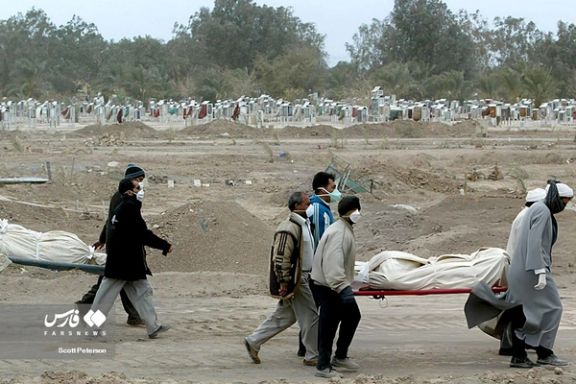
“Given that the IRGC did not have a pre-defined plan for such cases, and no exercise had been conducted with other organizations, this decision made the response process difficult for some time,” Daftrai wrote in his memoir.
Iran experiences an average of 10,000 earthquakes per year, according to the UN which defines the only acceptable response to such disasters as long-term reconstruction, recovery, and risk reduction. It has been demonstrated that earthquake-resistant construction can prevent tragedies from occurring such as is found in Japan and Chile.
After a 7.3-magnitude earthquake in Ezgeleh southwest Iran in 2017, the Iranian authorities were once again inadequately prepared to deal with the ensuing crisis.
In a report titled "Crisis in Crisis Management'' in 2017, Shahrvand newspaper quoted Hamidreza Eskash, a crisis management lecturer and consultant, as saying: "Crisis management in Ezgeleh was no different from what happened in Bam. The number of facilities and resources had increased a bit, and we saw more helicopters in the sky.”
This statement is supported to a large extent by the report of the Housing, Road and Urban Development Research Center on the Ezgeleh earthquake. The report states that the destroyed structures were not suitable for seismic zones, the same thing which happened in Bam and its surrounding villages.
Mismanagement still prevails in logistics preparation and response to the crisis, which is the result of managers' ideological viewpoints. A memorandum of understanding signed with the Qom seminary to reduce natural disasters reflects the view of the leaders of the Islamic Republic.
With experts warning of a possible tremor in Tehran with a population of 11 million and located in a seismic region, any large earthquake will result in a disaster of epic proportions, unless the government begins to seriously prepare itself.
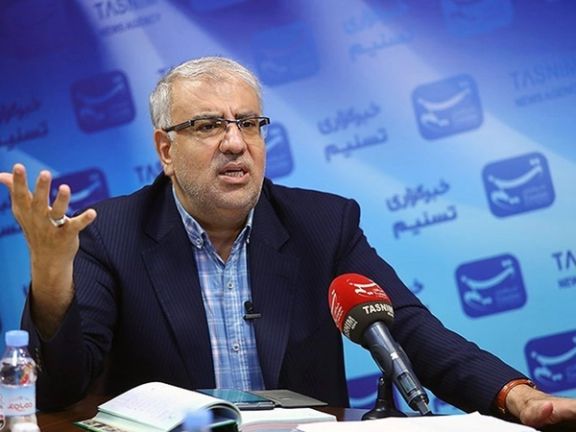
Iran has praised Iraqi officials for cutting oil output, saying the two countries had a common position regarding both OPEC and the wider OPEC+ grouping which includes allies such as Russia.
Iranian oil minister Javad Owji's comments came as he signed a number of preliminary agreements with his Iraqi counterpart in Tehran, state media reported.
"Iran and Iraq have a common position regarding OPEC and OPEC+. We thank the Iraqi officials for the voluntary cuts they implemented to improve (oil) prices. We have had negotiations about future issues related to OPEC and OPEC+," Owji said without giving any further details.
Iraq has said it will begin voluntarily cutting its oil output by 220,000 barrels per day (bpd) from the start of January to the end of March as part of a wider voluntary agreement by some of the OPEC+ group.
The agreements signed in Tehran on Wednesday include memoranda of understanding (MoU) to develop shared oil and gas fields, particularly Sindbad in Iraq and Khorramshahr in Iran, Iran's Borna news agency said without giving further details.
Owji said he was hopeful that the development of shared fields would begin soon.
"We reached acceptable agreements on the renovation of Iraqi refineries by Iranian experts and a committee to follow up on this issue has been created," Owji added.
(Report by Reuters)